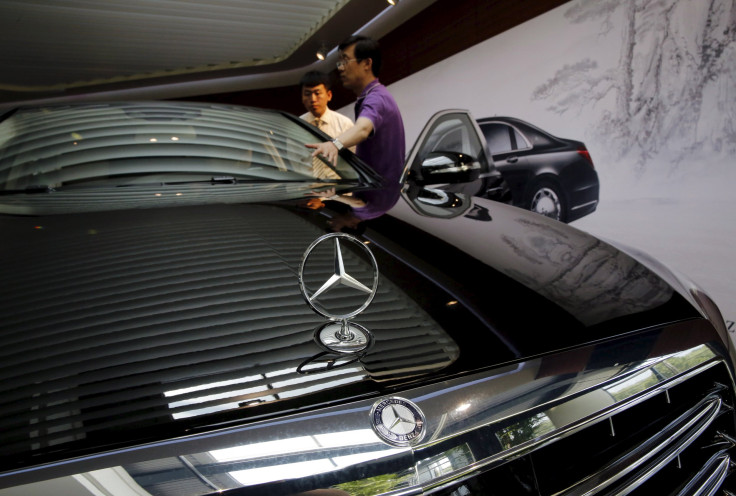China Economy: Car-Buying Sentiment Drops In China As Buyer Confidence Falters In Economic Slowdown

As the world watches China’s economic slowdown and struggles to adjust to a new reality in global markets, automakers got another piece of bad news from the world’s biggest car market. A monthly survey that tracks car-buying sentiment in China shows fewer people are planning to make a car purchase over the next 12 months.
“There was a pullback in the car-buying environment in August,” said a report released Tuesday from London-based MNI Indicators, a provider of global economic data that regularly polls Chinese consumer sentiment. The monthly report suggests the number of Chinese consumers planning to make a car purchase over the next year fell to 18.7 percent from nearly 21 percent, a significant drop that’s in line with the current downward trend in monthly Chinese new-auto sales, which dropped nearly 7 percent in July.
Consumers who are in the market to buy new cars in China are scaling back their budgets, too. Buyers who a year ago might have forked out more cash for an entry-level luxury BMW are downgrading to humbler choices. Most respondents to the recent poll say they’re budgeting about 120,000 yuan (roughly $19,000), considerably less than the average $32,000 American car buyers are spending.
Global automakers have been warning about China’s slowdown for more than a year. And last month, BMW said global manufacturers are shifting vehicle exports away from China into other emerging markets and the U.S., a car market that has yet to feel any measurable impact from China’s downturn. (A stronger dollar is encouraging foreign companies to export to the U.S. because of the foreign-exchange gains they make converting profits into their local currencies.)
As Chinese households cut back on car-buying budgets, domestic automakers appear to be reaping some gains, according to semi-annual reports released by some Chinese automakers.
Privately held Great Wall Motors, China’s largest domestic SUV manufacturer, said revenue increased 30 percent to 37.12 billion yuan ($4.9 billion) in the first half of the year over the same period in 2014, according to Gasgoo.com, which tracks the Chinese auto industry. Changan Automobile, a state-owned maker of affordable cars, which has partnerships with Ford Motor and PSA Peugeot Citroen, said revenue increased 37 percent to 33.05 billion yuan ($5.20 billion) in the same period.
© Copyright IBTimes 2024. All rights reserved.






















